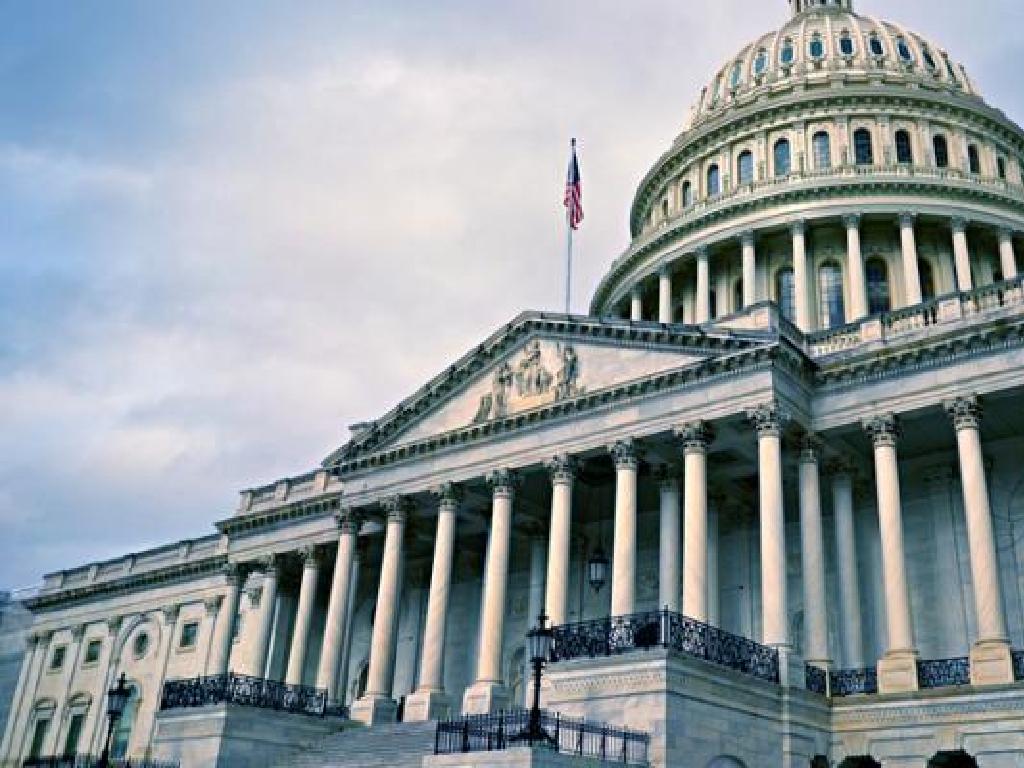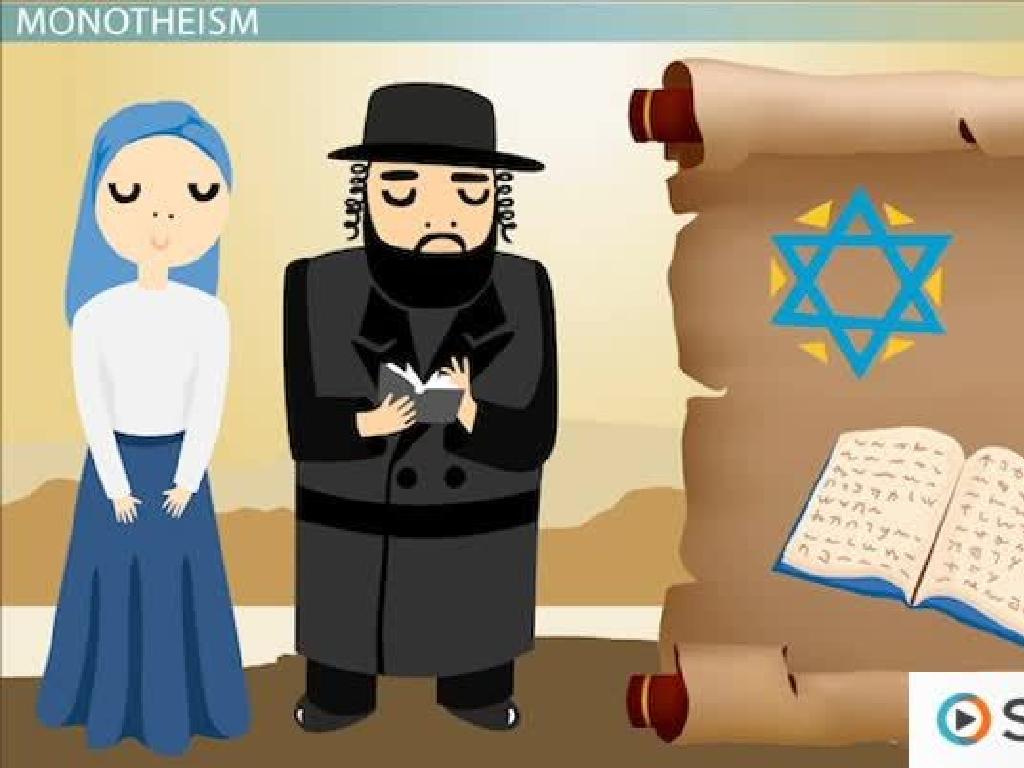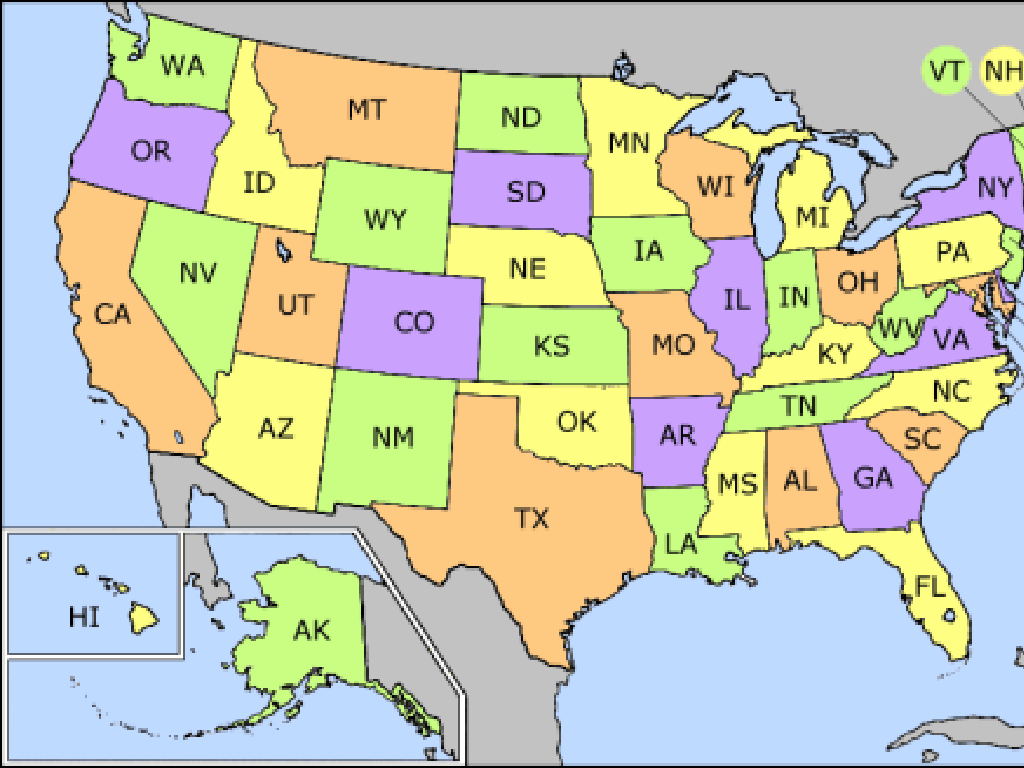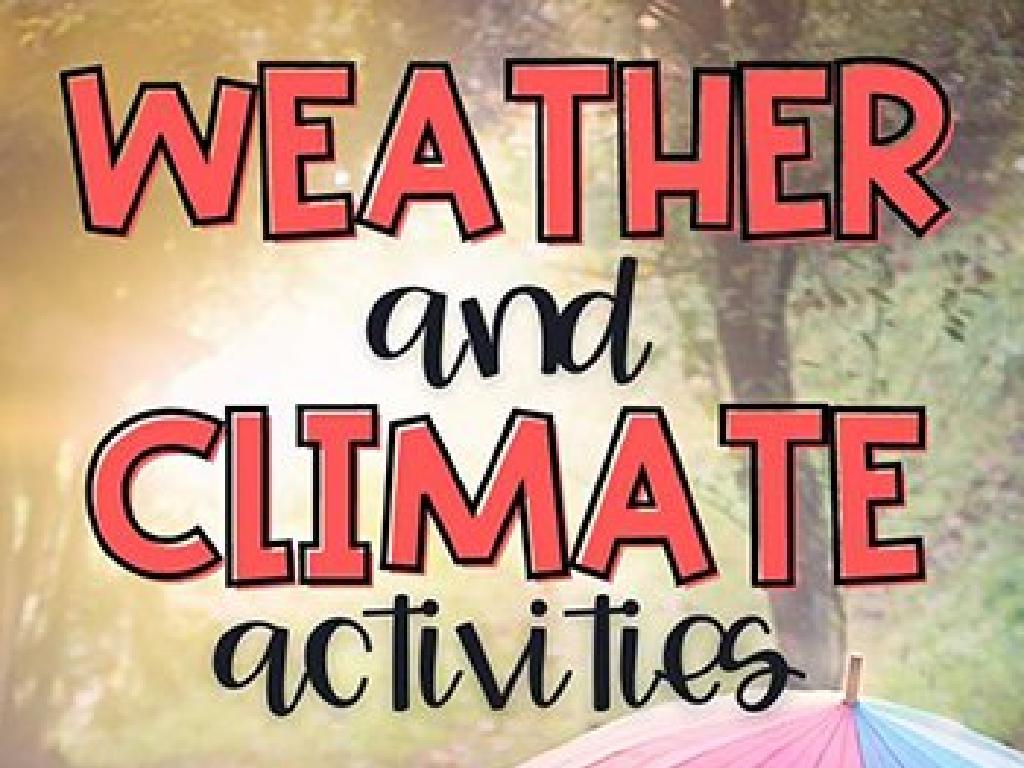Colonial America (1607-1754)
Subject: Arts and humanities
Grade: High school
Topic: Us History
Please LOG IN to download the presentation. Access is available to registered users only.
View More Content
Welcome to Colonial America (1607-1754)
– Introduction to Colonial America
– The era of early settlements and colonies in America
– The concept of the New World
– ‘New World’ was the term Europeans used for the Americas
– Motives behind European colonization
– Economic gain, religious freedom, and new opportunities
– Impact on indigenous populations
– Encounters led to cultural exchanges and conflicts
|
This slide introduces students to the period of Colonial America, marking the establishment of European settlements in what was then termed the ‘New World.’ It’s crucial to discuss the various reasons Europeans sought to colonize these lands, including the pursuit of wealth, the desire for religious freedom, and the search for new opportunities. Highlight the impact of colonization on the native populations, including the cultural exchanges that took place and the conflicts that arose. Encourage students to consider the perspectives of both the colonizers and the indigenous peoples to gain a comprehensive understanding of this historical period.
Jamestown: The First English Settlement
– Jamestown’s establishment in 1607
– First permanent English colony in America, founded for trade and profit.
– Settlers’ early challenges
– Faced disease, famine, and conflicts with Native Americans.
– Tobacco’s role in survival
– John Rolfe’s tobacco cultivation led to economic success.
– Jamestown’s legacy in US history
|
This slide aims to introduce students to Jamestown, the first permanent English settlement in America, and its significance in US history. Established in 1607 in Virginia, Jamestown was founded by the Virginia Company of London with the goal of profiting from natural resources. The settlers faced numerous challenges, including harsh conditions, disease, famine, and conflicts with indigenous peoples. The introduction of tobacco cultivation by John Rolfe was a turning point for Jamestown, leading to economic prosperity and the establishment of a successful English colony. This set the stage for the expansion of English settlements in the New World and the complex history of colonial America. Discuss the long-term impacts of Jamestown’s establishment, including its role in shaping the future United States.
Pilgrims and the Plymouth Colony
– The Mayflower voyage
– Pilgrims sailed on the Mayflower in 1620 seeking religious freedom
– The Mayflower Compact significance
– The Compact was a pioneering document for self-governance in the New World
– The first Thanksgiving
– A harvest feast in 1621 shared with the Wampanoag tribe
– Distinguishing myth from reality
– Explore the historical facts versus popular beliefs about Thanksgiving
|
This slide aims to provide an overview of the Pilgrims’ journey to America and their early experiences that shaped the foundation of the Plymouth Colony. Discuss the significance of the Mayflower voyage as a quest for religious freedom and the Mayflower Compact as an early form of democracy. Highlight the first Thanksgiving as a moment of cooperation between the Pilgrims and Native Americans, while also addressing the common misconceptions surrounding this event. Encourage critical thinking by comparing the traditional narrative with historical evidence. This will help students understand the complexities of history and the importance of examining multiple perspectives.
Exploring the Thirteen Colonies
– Overview of the 13 Colonies
– The 13 Colonies were British colonies on the East Coast of North America founded between 1607 and 1733.
– Regional differences highlighted
– New England had a focus on shipping and trade, the Middle colonies on farming and commerce, and the Southern colonies on plantations and cash crops.
– Economic activities in the colonies
– The economy ranged from small farms and workshops to large plantations growing tobacco, rice, and indigo.
– Social life in colonial times
– Social life varied with religious practices, class structures, and family roles playing significant parts.
|
This slide provides a high-level overview of the Thirteen Colonies, their regional differences, and the economic and social aspects of colonial life. It’s important to convey the diversity among the colonies, from the Puritanical society of New England to the plantation economy of the South. Highlight the role of geography and climate in shaping the economic activities of each region. Discuss the social hierarchy, including the roles of women, family structures, and the impact of slavery. Encourage students to consider how these factors influenced the development of American society and culture.
Colonial Society: Class and Roles
– Class hierarchy in colonial times
– Society was divided into distinct classes, such as gentry, middle class, indentured servants, and slaves.
– Gender and age roles
– Men were leaders and providers, women managed households, children worked at a young age.
– Slavery’s societal impact
– Slavery was a key economic factor, influencing social structures and daily life.
– Dynamics of colonial life
|
This slide aims to provide an overview of the social structure and the roles of different groups in Colonial America. The class system was rigid, with a clear hierarchy that affected one’s lifestyle and opportunities. Men, women, and children had specific roles that were largely determined by gender and age, with men holding most of the power and influence. Slavery played a crucial role in the colonies, not only in terms of labor and economy but also in shaping the societal norms and relations. Discuss how these factors influenced daily life and the development of colonial society. Encourage students to compare these historical social structures with modern society, fostering critical thinking about social progress and the remnants of past systems in today’s world.
Colonial Government and Politics
– Varied colonial governments
– Colonies had different forms: charters, proprietary, royal governance.
– Representation and town meetings
– Town meetings and assemblies allowed colonists to voice opinions.
– Early American democracy
– Practices like voting and elections were early democracy forms.
– Influence on modern governance
– Colonial politics set foundations for the United States’ government system.
|
This slide aims to provide an overview of the political landscape in Colonial America. Highlight the diversity in the forms of government across the colonies, such as charter colonies which operated under charters agreed upon by the colony and the king, proprietary colonies which were organized by a proprietor, and royal colonies directly controlled by the king. Emphasize the role of representation and town meetings as early forms of democratic participation, where colonists had a say in local governance. Discuss how these gatherings planted the seeds for American democracy, including practices like voting and holding elections. Finally, draw connections between the colonial governance systems and the development of the modern American political system, noting the lasting influence of these early forms of government. Encourage students to think critically about how these historical forms of governance are reflected in today’s political structures and processes.
Religion and the Great Awakening in Colonial America
– Religion’s role in daily life
– Religion guided morality, education, and politics.
– Diversity of colonial beliefs
– Varied faiths coexisted: Puritans, Quakers, Catholics, etc.
– The Great Awakening’s influence
– A series of revivals altering religious practices and zeal.
– Societal changes post-Awakening
– Shift towards religious freedom and questioning authority.
|
This slide aims to explore the significant influence of religion in colonial America, highlighting its impact on various aspects of daily life, including morality, education, and governance. It also addresses the diversity of religious beliefs and practices among different colonies, which ranged from Puritanism in New England to Quakerism in Pennsylvania. The Great Awakening, a pivotal religious revival movement, brought about profound social and religious changes, leading to increased evangelical fervor, the establishment of new schools and colleges, and greater emphasis on individual faith and questioning of traditional authority. This movement laid the groundwork for the value of religious freedom and the spirit of independence that would later become central to the American identity.
Conflict and Expansion in Colonial America
– Tensions with Native Americans
– Competition for land and resources led to conflicts
– Colonial wars for territory
– Wars like King Philip’s War showed the struggle for power
– European conflicts’ impact
– European wars often extended to the colonies, e.g., Queen Anne’s War
– Expansion’s consequences
– Expansion led to social, economic, and political changes
|
This slide examines the various conflicts and expansion efforts during Colonial America. It highlights the tensions between settlers and Native Americans, often due to competition for land and resources, leading to numerous conflicts including King Philip’s War. Additionally, it discusses how colonial ambitions for territory resulted in wars, which were sometimes extensions of European conflicts, such as Queen Anne’s War. The slide also touches on the broader effects of these conflicts and territorial expansions on the colonies, including significant social, economic, and political changes. Teachers should provide examples of specific conflicts and discuss how they influenced the development of the colonies, as well as the relationships between different colonial powers and Native American tribes.
Road to Revolution: Colonial Unity and Resistance
– Emergence of colonial identity
– Shared experiences and values fostered a unique colonial identity, separate from Britain.
– Resistance to British rule
– Taxation without representation led to widespread discontent and acts like the Boston Tea Party.
– Key events sparking revolution
– From the Stamp Act (1765) to the Boston Massacre (1770), pivotal moments galvanized the colonists.
– Significance of unity in revolution
|
This slide aims to encapsulate the growing sense of American identity and unity among the colonies, which was a crucial factor leading up to the American Revolution. Discuss how the colonies began to see themselves as a collective entity, distinct from their British rulers. Highlight the various acts of resistance, such as boycotts and protests against British policies, particularly those related to unfair taxation. Outline key events that acted as catalysts for the revolutionary spirit, including legislative acts imposed by Britain and the consequential colonial responses. Emphasize the importance of unity as it became a driving force for the eventual uprising against British control. Encourage students to consider how these elements contributed to the desire for independence and set the stage for revolution.
Colonial America Town Meeting Role-Play
– Divide into regional groups
– Role-play a town meeting
– Act out a meeting as if you’re in the colonial era
– Discuss a specific colonial issue
– Choose issues like taxation, trade, or local laws
– Present group decisions to class
|
This class activity is designed to immerse students in the historical context of Colonial America by having them role-play a town meeting. Each group will represent different colonial regions such as New England, Middle, and Southern colonies. They will discuss and debate a colonial issue pertinent to their region, such as taxation without representation, trade restrictions, or the implementation of local laws. After the role-play, groups will present their arguments and the decisions reached during their meeting. This activity will help students understand the diverse perspectives and challenges faced by colonists. Possible issues for discussion include the Navigation Acts, the Molasses Act, or the establishment of local government. Encourage students to use historical facts and to articulate their points convincingly. This will foster a deeper understanding of the political and social dynamics of the period.






